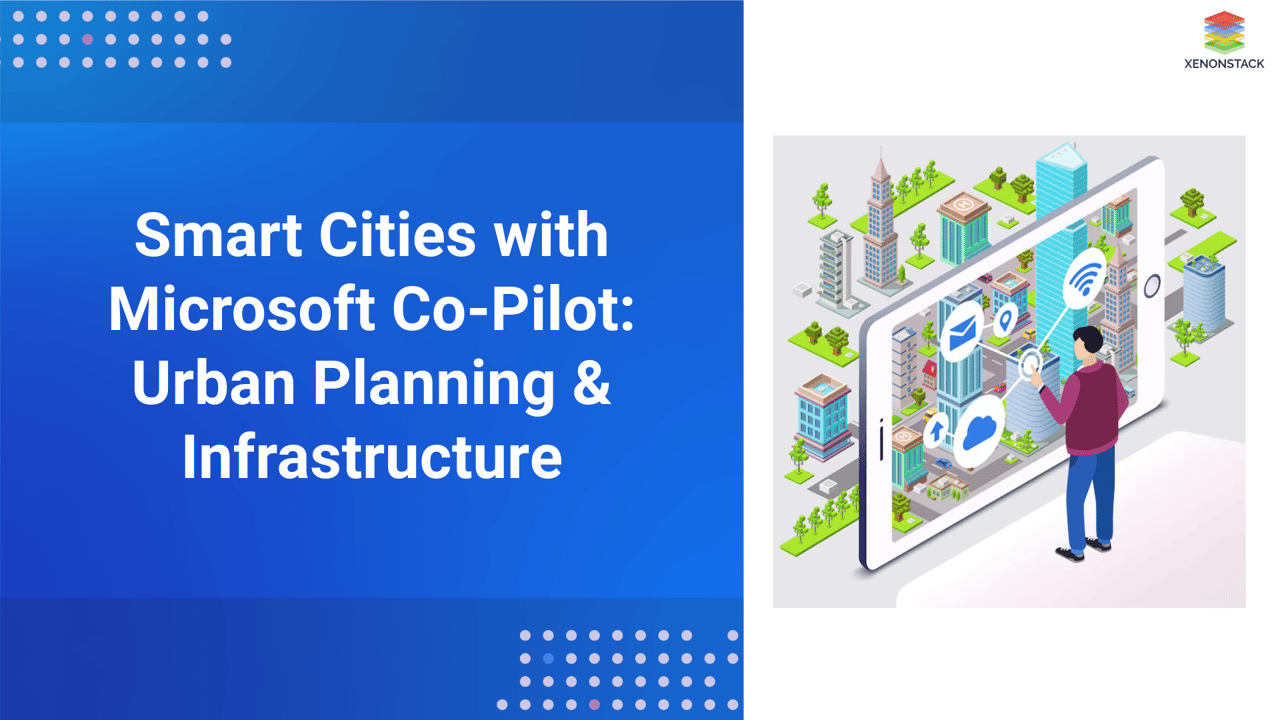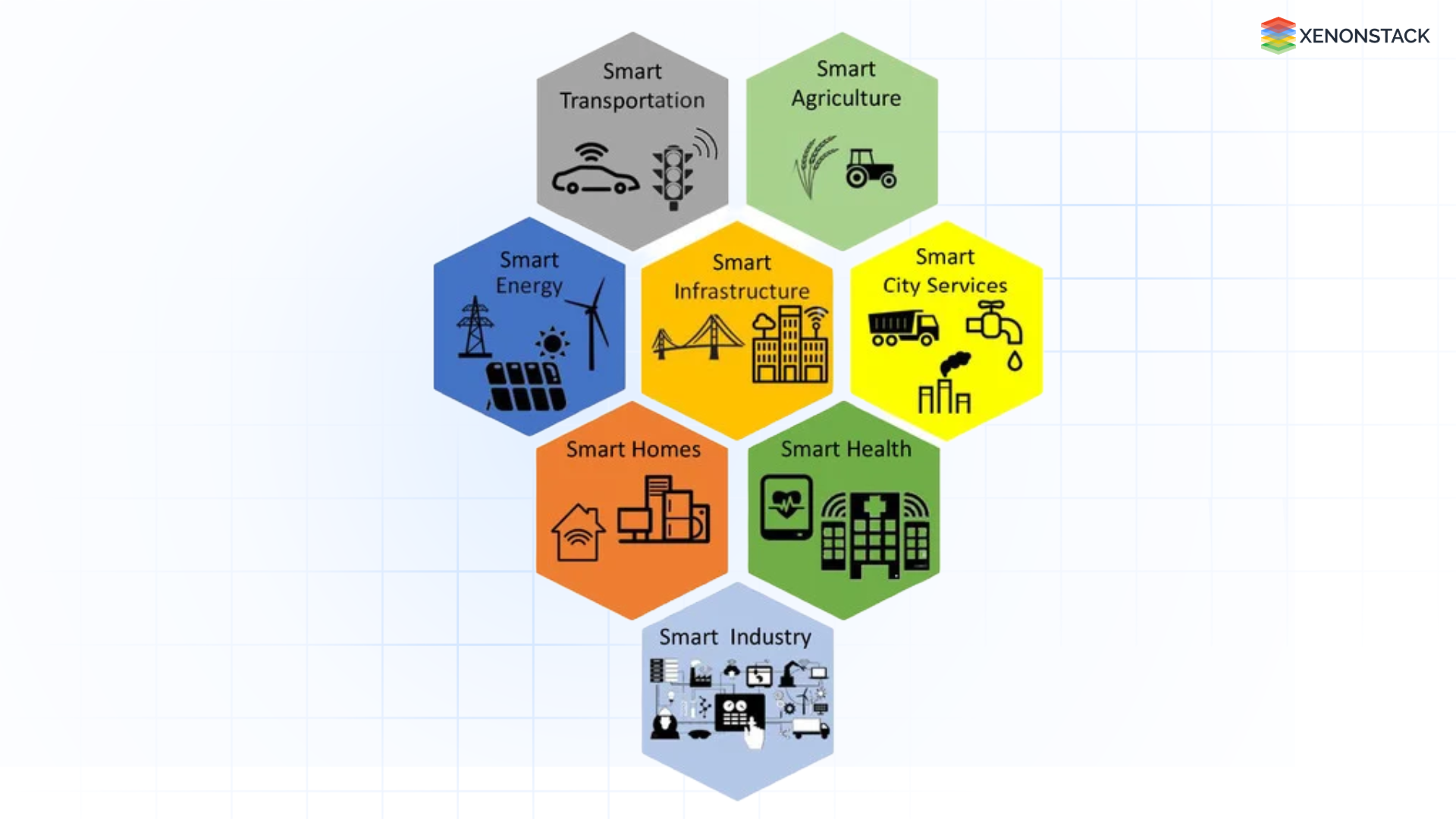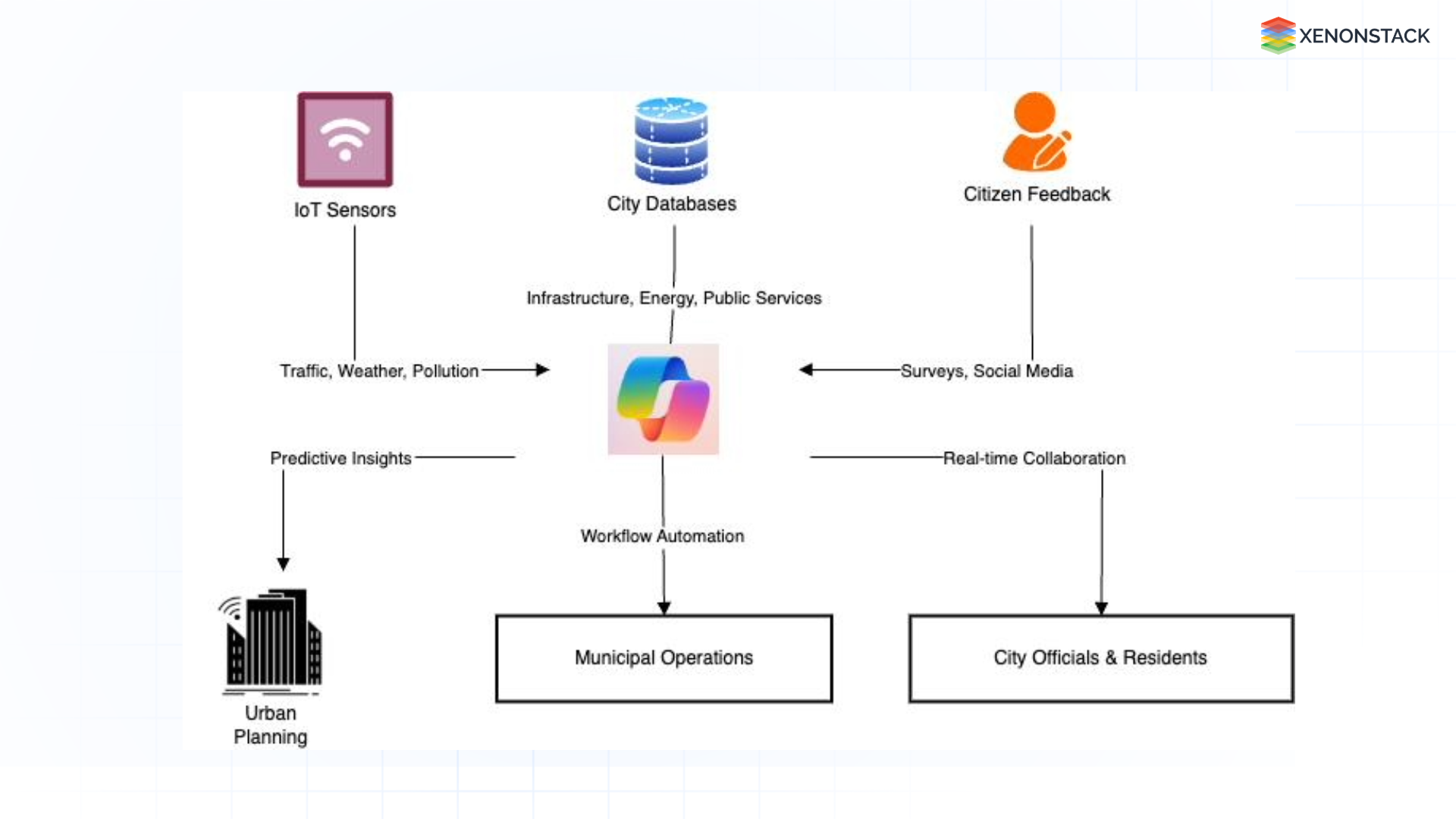
Introduction to Smart Cities
Defining Smart Cities
A smart city is an urban environment that integrates advanced technologies such as artificial intelligence (AI), the Internet of Things (IoT), and cloud computing to enhance infrastructure, optimize resource allocation, and improve residents' quality of life. These cities use data-driven decision-making to create sustainable, efficient, and interconnected urban ecosystems.
Benefits of Smart City Technologies
-
Operational Efficiency: AI-driven automation optimizes municipal services and infrastructure management.
-
Sustainability: Smart grids and IoT monitoring reduce environmental impact by optimizing energy and resource usage.
-
Enhanced Public Services: Intelligent transportation, waste management, and security systems improve urban living standards.
-
Community Engagement: Digital platforms facilitate transparent communication between citizens and local governments.
-
Economic Development: Technology-driven innovation attracts investment and fosters business growth.
Core Components of a Smart City
-
Intelligent Infrastructure: Integration of AI and IoT for real-time monitoring and automation of utilities, roads, and buildings.
-
Smart Mobility Solutions: AI-enhanced traffic control, public transport management, and multimodal transportation networks.
-
Public Safety Innovations: Predictive policing, AI-powered surveillance, and automated emergency response systems.
-
Environmental Monitoring: Data-driven air quality tracking, waste management automation, and energy-efficient urban planning.
-
Citizen-Centric Services: AI-driven digital governance, automated municipal services, and real-time information portals.
 Fig 1: Core Components of Smart City
Fig 1: Core Components of Smart CityMicrosoft Co-Pilot in Smart Cities
Understanding Microsoft Co-Pilot
Microsoft Co-Pilot is an AI-enhanced digital assistant designed to support data-driven decision-making in various domains, including urban management. Utilizing Microsoft Azure’s AI and machine learning capabilities, Co-Pilot facilitates predictive analytics, process automation, and seamless collaboration between city stakeholders.
How Co-Pilot Enhances Smart City Development
-
Real-Time Data Analysis: Processes vast urban datasets to generate actionable insights for city planning.
-
Automation of Routine Tasks: Reduces manual workload in municipal operations, streamlining governance.
-
Predictive Intelligence: Forecasts infrastructure demands, optimizing city planning efforts.
-
Integrated Communication Systems: Enhances coordination among government agencies and service providers.
Advantages of Implementing Co-Pilot in Urban Management
-
Data-Driven Governance: AI-driven insights support evidence-based policy-making.
-
Improved Public Services: AI-powered automation enhances transportation, utilities, and security efficiency.
-
Cost Optimization: AI-driven predictive maintenance reduces long-term infrastructure costs.
-
Resilient and Adaptive Cities: Enables urban environments to respond dynamically to evolving challenges.
Urban Planning with Microsoft Co-Pilot
AI-Driven Urban Development Strategies
Microsoft Co-Pilot enables urban planners to analyze demographic trends, traffic patterns, and infrastructure needs, ensuring data-informed decision-making for sustainable city expansion.
Predictive Analytics for Infrastructure Growth
Advanced AI models predict demand for transportation, housing, and utilities, allowing policymakers to allocate resources efficiently.
Collaborative Smart City Planning
Co-Pilot facilitates multi-agency collaboration by integrating data from various stakeholders, ensuring holistic urban development strategies.
 Fig 2: Urban Planning with Microsoft Co-Pilot
Fig 2: Urban Planning with Microsoft Co-PilotSmart Infrastructure Management
IoT-Enabled Infrastructure Monitoring
Co-Pilot aggregates data from IoT-enabled sensors deployed across roads, bridges, and utilities to assess infrastructure health in real-time.
AI-Powered Predictive Maintenance
Machine learning models analyze historical data to forecast potential infrastructure failures, allowing proactive maintenance and reducing operational disruptions.
Optimized Utility Networks
Innovative grid technologies powered by Co-Pilot ensure efficient energy and water distribution, minimizing waste and reducing costs.
Smart Mobility Solutions
AI-Based Traffic Management Systems
Machine learning algorithms optimize traffic signals, manage congestion, and improve road safety.
Intelligent Parking Systems
Co-Pilot automates parking management by providing insights into real-time space availability, reducing congestion, and improving urban mobility.
Multimodal Transportation Integration
AI-powered systems facilitate seamless transitions between different modes of transport, enhancing commuter convenience and reducing environmental impact.
Public Safety and Security
AI-Driven Crime Monitoring and Prevention
Advanced analytics detect crime patterns and identify potential threats, enhancing public safety through proactive law enforcement.
Optimized Emergency Response
Real-time analytics enable first responders to deploy resources more effectively, improving emergency response efficiency.
Enhanced Citizen Safety with Smart Surveillance
AI-enhanced monitoring systems analyze video feeds to detect anomalies and prevent security incidents in real-time.
Sustainability and Environmental Protection
AI-Powered Waste Management
Machine learning algorithms optimize waste collection routes and schedules, reducing carbon emissions and operational costs.
Advanced Air Quality Monitoring
Co-Pilot analyzes environmental data to predict pollution trends and support regulatory measures.
Promoting Green Initiatives Through AI
AI-driven data insights guide urban policies to support renewable energy adoption and sustainable urban planning.
Citizen Engagement and Digital Services
Personalized Citizen Services
AI-powered digital assistants provide personalized recommendations and real-time assistance for urban residents.
Smart Information Portals
Centralized digital platforms enhance transparency by providing real-time updates on municipal services, transportation, and community events.
Efficient Complaint Resolution Systems
AI-powered service desks streamline issue resolution by categorizing and prioritizing citizen complaints for faster response times.
Challenges and Best Practices for AI-Driven Smart Cities
Privacy and Cybersecurity Considerations
Ensuring robust data encryption, compliance with global data privacy standards, and transparent AI governance.
Standardization and Interoperability
Establishing common frameworks and global interoperability standards to integrate diverse smart city technologies seamlessly.
Change Management and Adoption Strategies
Encouraging stakeholder collaboration, training municipal employees, and engaging communities in smart city transformation.
The Future of Smart Cities with Microsoft Co-Pilot
Emerging Trends and Technological Innovations
-
AI-powered predictive urban planning tools.
-
5G-enabled smart city infrastructures.
-
Blockchain applications for transparent municipal transactions.
- Co-pilot for software development
- Real Estate Operations with Microsoft Copilot
- Legal Services with Microsoft Copilot
Scaling Smart City Initiatives
Developing scalable AI frameworks to transition innovative city pilot projects into full-scale deployments.
Driving Sustainable Urban Growth
Leveraging AI to create resilient, adaptive, and sustainable urban environments that align with long-term economic and environmental objectives.
Next Steps in Smart Cities with Microsoft Co-Pilot
Talk to our experts about implementing compound AI system, How Industries and different departments use Agentic Workflows and Decision Intelligence to Become Decision Centric. Utilizes AI to automate and optimize IT support and operations, improving efficiency and responsiveness.


